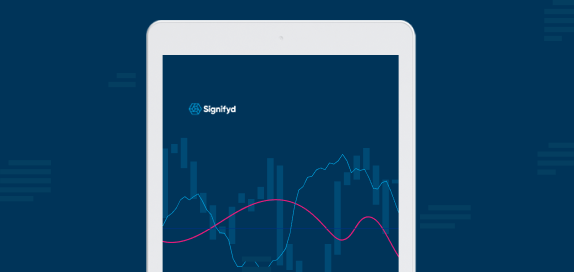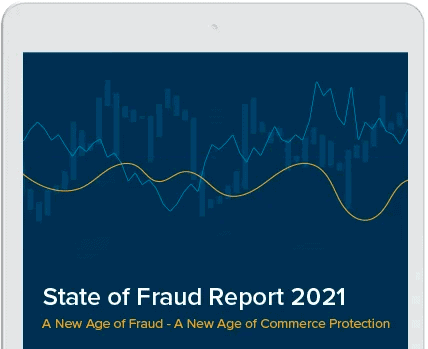Signifyd FLOW Digital Risk Connect recently brought together Signifyd’s Tim Potvin, senior director of customer success west, and Ryan Bermudez, senior director of customer success east to connect virtually with Devan Nielsen, director of Merchant Fraud Prevention at Overstock.com in an “ask-me-anything” session. Among other topics he covered, Nielsen imparted useful career advice to anyone interested in going into a payment fraud protection career. Here is an excerpt from his Q&A.
Q: Tell us about yourself, Devan. How did you get to your current position and what do you do every day?
A: Ten years ago, Overstock was hiring for just the fourth quarter—just the holiday season. Given the sales volume they were experiencing, they needed a lot more people in the fraud department. I applied and was accepted just as a temporary fraud analyst. I really loved the job. I liked looking into data and as a fraud analyst, you just want to catch all the bad guys. You love canceling orders and stopping orders and, and just doing everything you can, so they don’t get their products or stolen money. I quickly was promoted to a team lead and started learning as much as I could about fraud strategy.
When I became a fraud manager, my mindset had to shift a lot. Rather than simply stopping fraudsters it became all about getting the good customers through and causing less customer friction. It was a huge mindset shift. Even today, it’s still hard sometimes to just not cancel everything that looks like fraud.
I eventually worked my way up to being the director of online fraud prevention solutions, where I am today.
Established: 1997
Website: Overstock.com
Headquarters: Midvale, UT
Business: Overstock sells nearly 3 million products ranging from clothing to furniture from a wide range of brands, including private labels.
Annual revenue: $2.55 billion, up 74.7% in 2020 over 2019
Q: What are some of the skill sets that you look for and try to hone when you hire? And as you build up your team, what are some of the things that are top of mind when you’re looking for a good candidate?
A: One of the characteristics that I always look for in people when interviewing them is common sense, because sometimes that seems hard to come by. You’ll find people that are great at data, and you’ll find people that are great at analyzing data or looking at data, but then they lack the common sense and their data brains think only in black and white.
We do like to give some personality tests, but mostly we just talk to people and give them different scenarios and try to see what kind of decisions they would make. A lot of people say they just want to stop the bad guys. And when they first start, everything looks like fraud. I’m looking for that kind of integration between common sense and being able to look at a lot of data and make quick decisions.
Q: What should a fraud analyst who is growth-oriented and ambitious do to get ahead?
A: For young analysts, especially, ask your boss and their boss, what else you can do. What other projects can you take on? Just taking that initiative is not only going to make you a better analyst, but it’s going to help you in the business. Even reach out and network with other parts of the business—something that helped my career growth a lot was communicating with logistics and supply chain and returns and other departments. Build connections and learn what other pieces go into the whole puzzle, because sometimes all you’re seeing is orders that are coming through and you don’t know much else about the business.
Q: What about networking with people outside your company?
A: Yes! Another thing that I would advise most people to do in the fraud industry is to join organizations like the Merchant Risk Council (MRC), and to go to webinars like this and ask questions. I find that a lot of fraud managers aren’t doing that kind of networking. They’re just stuck in a silo trying to figure out how to do things themselves. The fraud industry is wonderful in the way that we’re all kind of on the same team and we’re all working together to stop the fraudsters, regardless of whether we compete in other ways.
Again, make connections. A lot of fraud analysts they’ll come into the job and they just kind of stay where they’re at. We really want growth-oriented people. People who want to dig into the industry a little bit more and learn more.
Q: How do you expect your team to evolve? How does its size change as people get more efficient and you have better tools?
A: A huge part of my strategy and execution in the past year and a half to two years has been to optimize utilizing both technology automation and our team. I strongly believe in having manual review as well as machine learning. We’ve actually been able to reduce our team size since 2018 by about half. A big part of that was being able to reduce the review rate by using other vendors to check on emails and other threat metrics. We work with all the different vendors and utilize their network data to reduce the manual review rate and overall reduce our team size. I like where our team is currently at. It’s a great head count. We have about 15 in the United States and 10 to cover for us when we’re not working.
Q: You’d previously mentioned using scorecards for assessing talent and how you promote them through your team. Can you talk a bit more about that methodology?
A: I believe it was around 2018. We decided to introduce a fraud analyst tiered system. So today we have fraud analysts 1, 2, and 3. We created a scorecard that we call our costs-per-order scorecard. And it essentially tells us how much it’s costing per order that every analyst works. We take in everything from how much we’re paying them, how many hours they’ve worked, how many orders they reviewed, and resolved. And we also add in their revenue leakage or what they approved that came back as fraud.
We divide that cost by how many orders they’ve actually resolved. That gives us an estimate of how much they cost to sit at their desks.
After we introduced that and what metrics they needed to move up the tiered system, we were actually able to reduce our headcount because a lot of people were striving to do a better job. You could just automatically see a huge improvement because they were incentivized. We gave them a raise every time they hit the new tier.
Q: Anything else you do with your team that you think is unique?
We do weekly trainings, where a team leader, one of the fraud analysts, or I pick a topic. We train on that for the hour. Everybody learns each other’s tips and tricks because everybody has a different workflow and everybody has figured out something that not the entire department has figured out. Everybody’s always learning from that and growing from that. We do this every week without fail.
Join Signifyd’s FLOW community to network and strategize with fellow ecommerce leaders.











